Late attack comes up short for Lopez at Vuelta a Espana
'Superman' takes second place for second consecutive stage
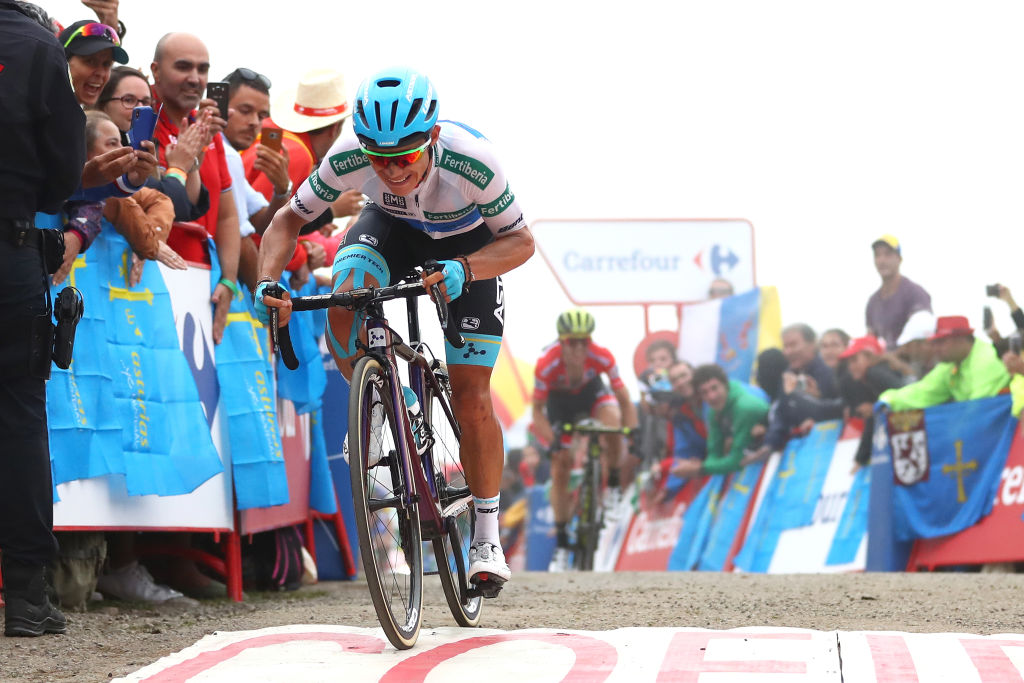
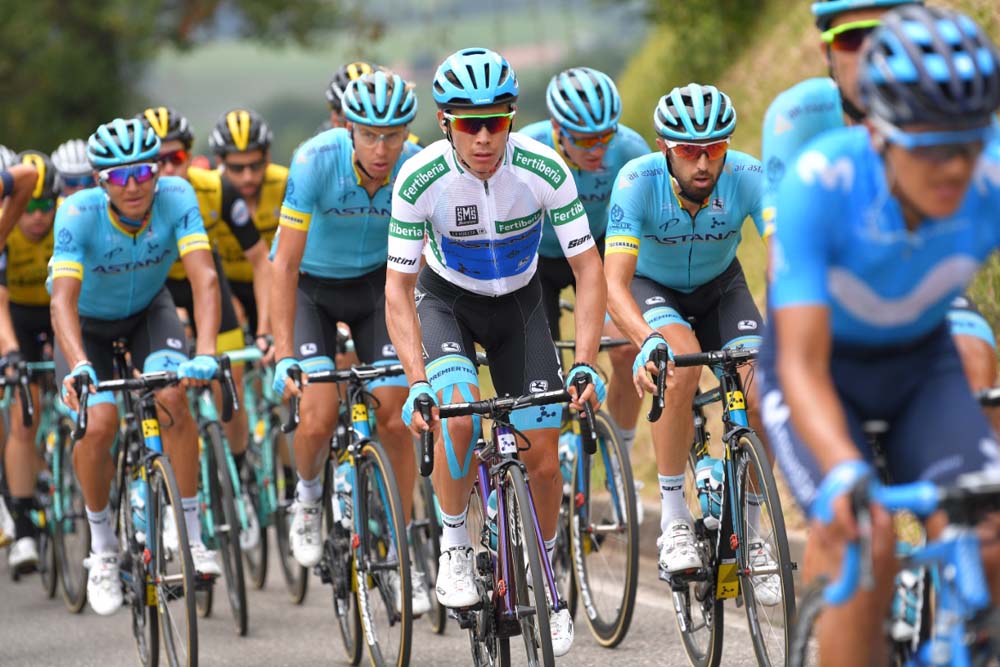
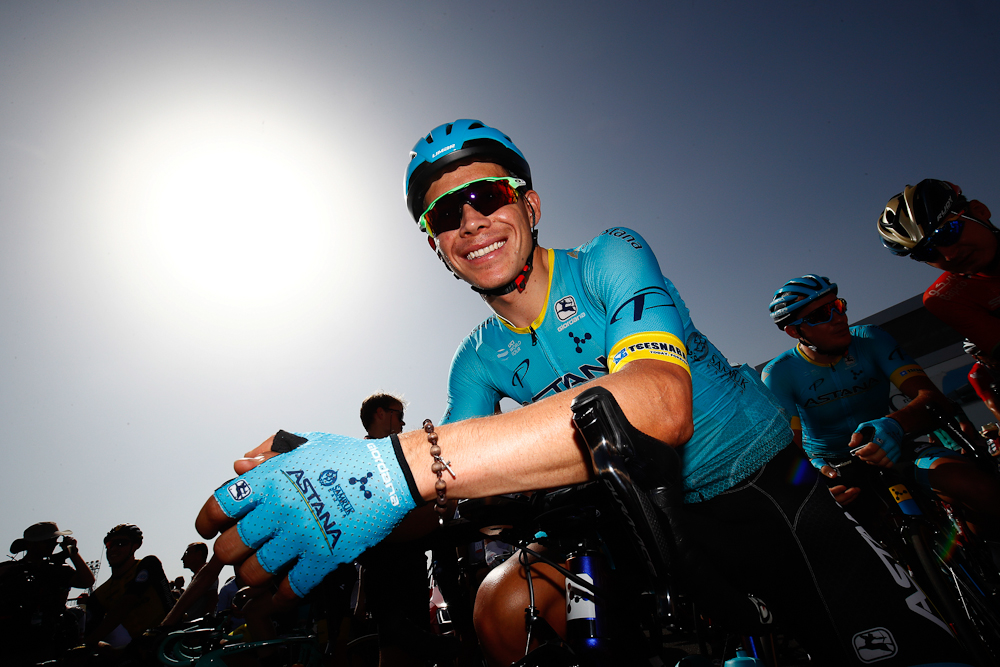
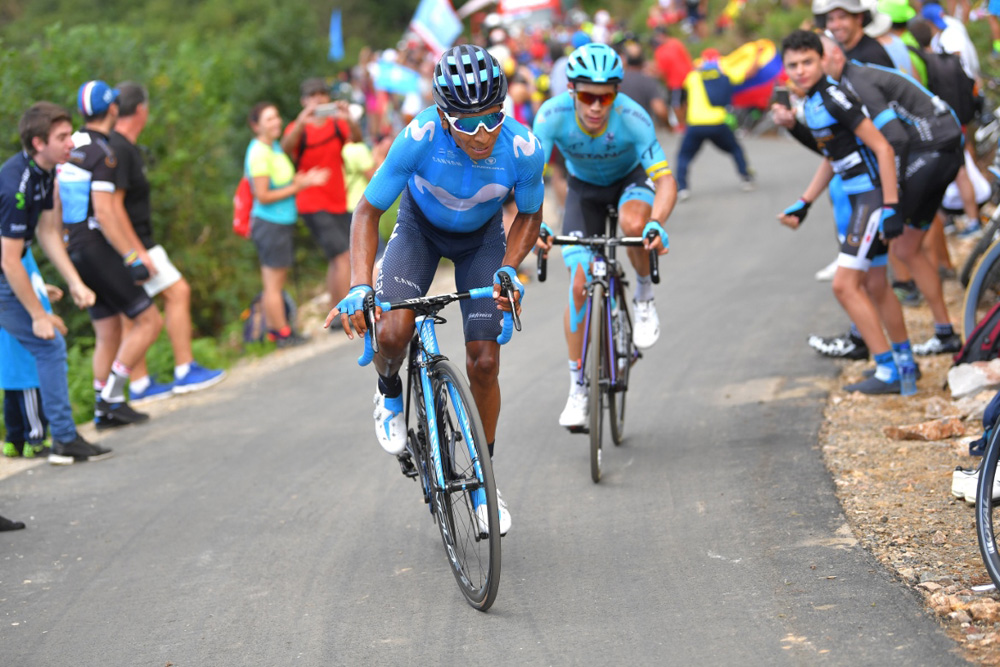
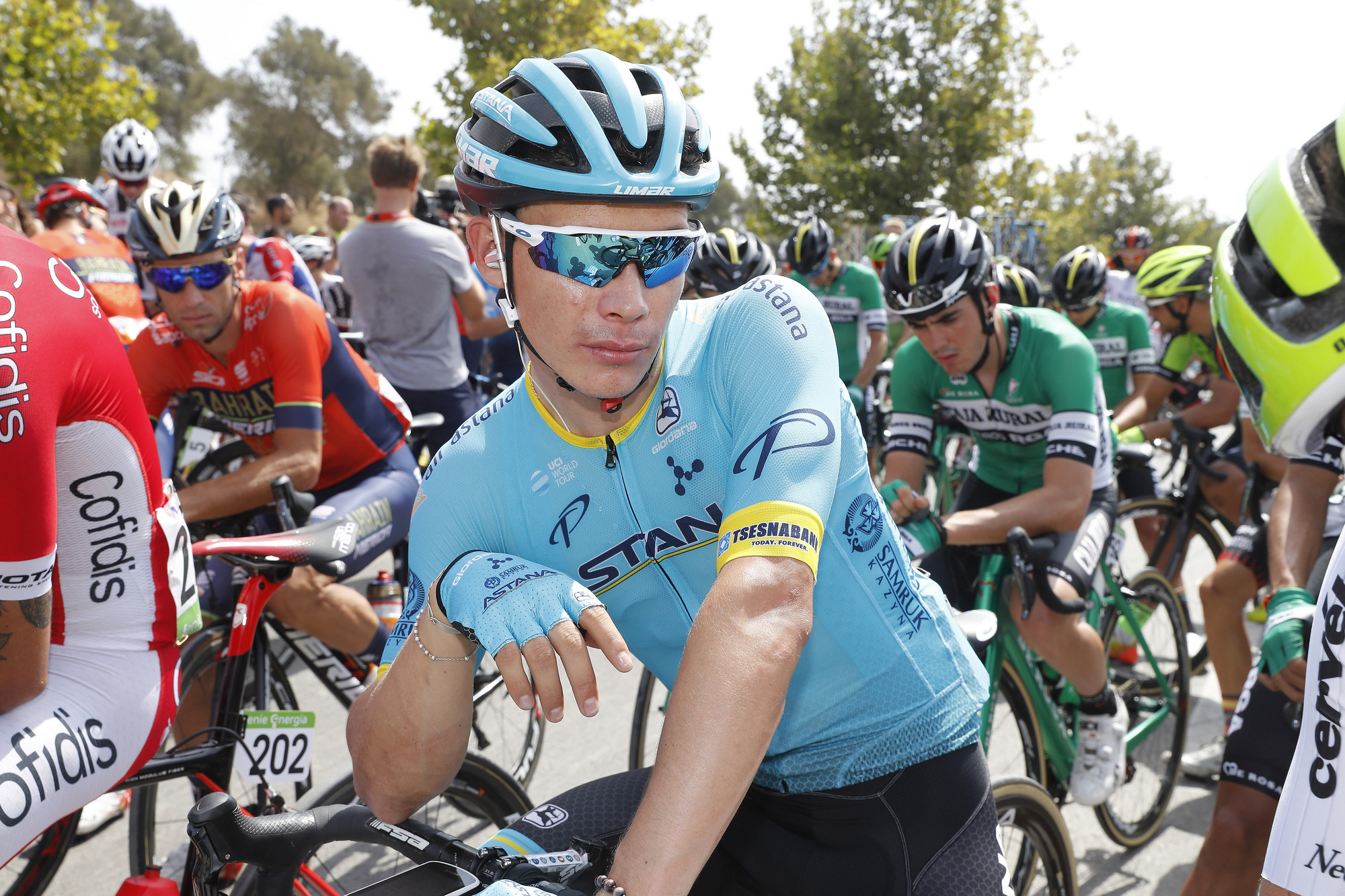
Miguel Angel Lopez (Astana) was one of the most active of the GC racers on the slopes of the Lagos de Covadonga on stage 15 of the Vuelta a España on Sunday, but he ended up having to settle for second.
After Astana had put in a ferociously aggressive performance on the lower slopes of the Covadonga, López’s powerful attack when he lunged clear 7.6 kilometres from the line was the first of the top names on GC and caught several riders by surprise.
That attack was brought back, and when 'Superman' made another big move with two kilometes to go, Nairo Quintana (Movistar) notably failed to cooperate with race leader Simon Yates (Mitchelton-Scott) to try to reel in the Colombian.
Between Lopez's two big attacks – one early and one late on the climb – Thibaut Pinot (Groupama-FDJ) had got away, and rode on to the stage victory.
As a result, the 2018 Giro d'Italia podium finisher, and winner at Calar Alto and Sierra Nevada at last year's Vuelta, had to settle for his second place in the mountains in 24 hours.
"Second again. We deserved to win after all the hard work the team had done," López told reporters later. "But I was running out of energy and it got next to impossible because Pinot had put in a really strong attack.
"We were all looking at each other when he went."
Get The Leadout Newsletter
The latest race content, interviews, features, reviews and expert buying guides, direct to your inbox!
Lopez was closely shadowed by Quintana on the climb too. As Lopez pointed out, "Pinot had a bit more freedom of movement."
Quite apart from Lopez being viewed by the other GC contenders as too dangerous to let go up the road, the Colombian – fourth overall – repeated his belief that "we are all very equal in terms of strength".
"If somebody attacked, then you used up what little energy you had to pull him back, and then you were lacking a bit yourself," he said.
"But I tried to go clear. I’ve got a very strong team and their really hard work on the climb made the rest of my rivals suffer. That makes me feel motivated for what's left of the Vuelta a España."

Alasdair Fotheringham has been reporting on cycling since 1991. He has covered every Tour de France since 1992 bar one, as well as numerous other bike races of all shapes and sizes, ranging from the Olympic Games in 2008 to the now sadly defunct Subida a Urkiola hill climb in Spain. As well as working for Cyclingnews, he has also written for The Independent, The Guardian, ProCycling, The Express and Reuters.
